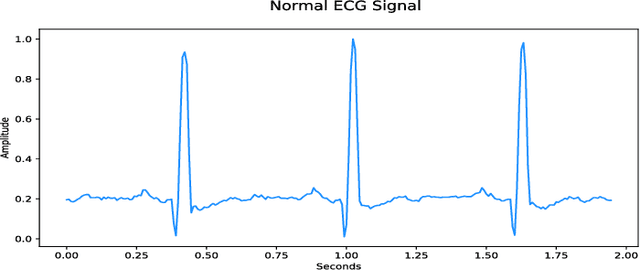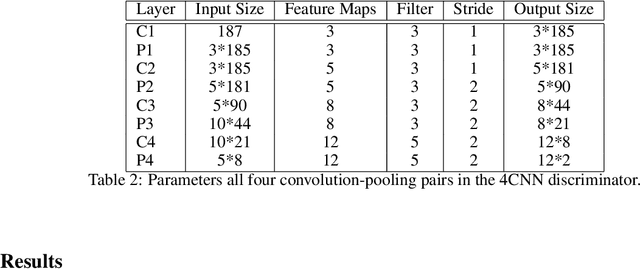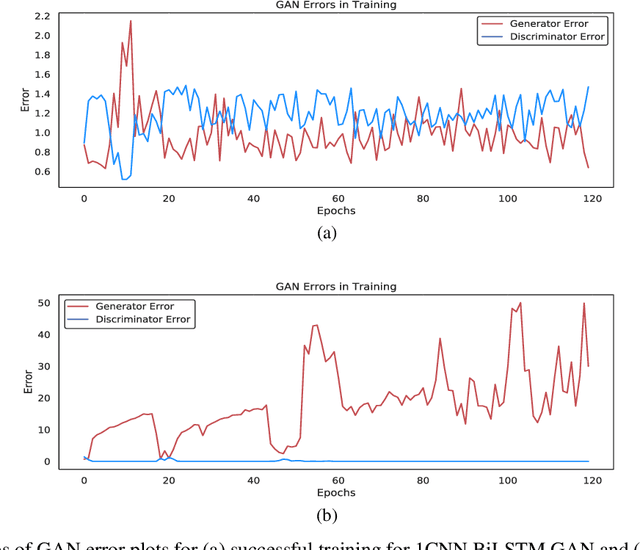Anne Marie Delaney
Synthesis of Realistic ECG using Generative Adversarial Networks
Sep 19, 2019



Abstract:Access to medical data is highly restricted due to its sensitive nature, preventing communities from using this data for research or clinical training. Common methods of de-identification implemented to enable the sharing of data are sometimes inadequate to protect the individuals contained in the data. For our research, we investigate the ability of generative adversarial networks (GANs) to produce realistic medical time series data which can be used without concerns over privacy. The aim is to generate synthetic ECG signals representative of normal ECG waveforms. GANs have been used successfully to generate good quality synthetic time series and have been shown to prevent re-identification of individual records. In this work, a range of GAN architectures are developed to generate synthetic sine waves and synthetic ECG. Two evaluation metrics are then used to quantitatively assess how suitable the synthetic data is for real world applications such as clinical training and data analysis. Finally, we discuss the privacy concerns associated with sharing synthetic data produced by GANs and test their ability to withstand a simple membership inference attack. For the first time we both quantitatively and qualitatively demonstrate that GAN architecture can successfully generate time series signals that are not only structurally similar to the training sets but also diverse in nature across generated samples. We also report on their ability to withstand a simple membership inference attack, protecting the privacy of the training set.
 Add to Chrome
Add to Chrome Add to Firefox
Add to Firefox Add to Edge
Add to Edge